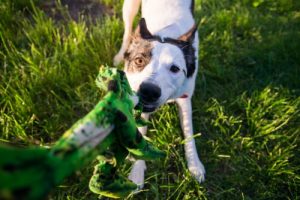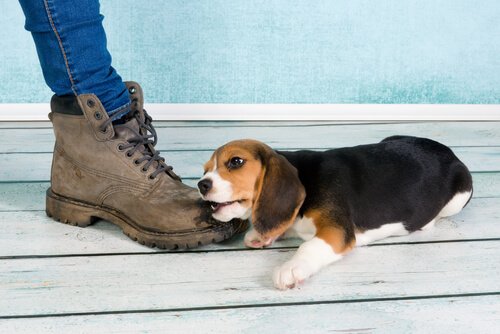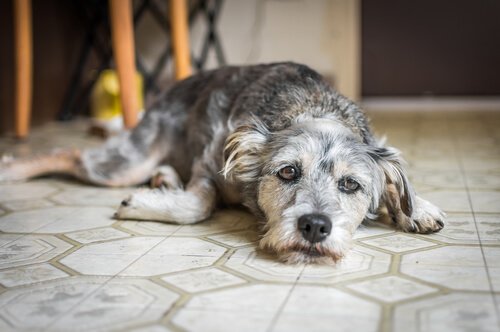My Dog Chews on Everything: How to stop him?

Everyone loves dogs when they’re well trained, quiet, and calm. They are even more pleasant to have if they can control their impulses for getting people’s attention. However, that’s not always the case. There are occasions — very recurrent ones in fact — in which your dog chews on everything.
There are many reasons why this happens, you can read about them in today’s article. You don’t have to worry about the solutions being too strict on your dog because it’s only a simple behavioral issue you’re dealing with.
My dog chews on everything
This is a normal problem in small puppies ages from 3 months old and up. It’s very natural and common at that stage of life because it’s their way of getting to know the world around them. However, that’s not the only reason. Also, dogs chew to relieve pressure from teething.

This is how a puppy discovers himself. A dog can know or not know what will be their habits and practices as they get to know their environment and develop in it. Also, a dog’s mouth is equivalent to a human’s sense of touch, so chewing is completely normal.
It’s true that puppies chew on things quite often, but what about adult dogs? In theory, these animals should already know more about the environment around them, so why would they chew? There are many reasons why this happens.
Attention or boredom, how can you tell?
Dogs are very sociable animals who love to have company and be entertained. One problem in our society is that we can’t provide for those needs all the time. So to pass the time, dogs usually chew everything they find so we’ll pay attention to them.
There are two very specific cases that chewing takes place. The first one is when you arrive home and see the dog has made a mess in your home. The other case is similar to when you arrive home and your dog greets us, then immediately starts chewing on things.
Identifying when a dog chews out of anxiety, and when they have a need for attention is very simple. The first one clearly shows that a dog is anxious about being alone. In the second case, is that they’re trying to get your attention. Dealing with both cases isn’t a big deal and you can take care of the problem quite quickly.
Treating compulsive chewing
First of all, it has to be very clear that punishing these animals would do more harm than good because the dog will continue to retaliate. Positive reinforcement is your best ally for dealing with compulsive chewing.

Now that we’ve made that fact clear, it’s time to think for a moment: do you spend a lot of time away from home? Separation anxiety is a recurring problem in dogs who are left home alone for long periods of time with nothing to do. A dog chews on things to help the time pass by.
In more severe cases, they may even start chewing on their own limbs, leading to self-mutilation. However, if you take care of this problem on time, it most likely won’t be such an issue.
- Consider leaving around many different types of toys to distract your pet while you’re not home. If your dog has a tendency to chew on things and you can’t afford toys, you can make some yourself with recycled materials.
- Leave the radio on or play some music. This will reenact the presence of humans around the dog and calm them down a bit.
- If you have the means to do so, consider getting another pet. Another dog or even a cat are fantastic choices to entertain your dog for several hours.
When it comes to anxiety, dealing with these cases is pretty straightforward. However, when it’s an attention problem, things change a bit. You have to use more direct corrective methods. Nevertheless, you should never make them feel punished.
- You must teach them to be respectful. Dogs have a tendency to chew on things and they don’t know what the limits are. So, it’s up to you to teach them what’s right and wrong at an early stage of life. That way, you can prevent the animal from developing this behavior beyond the permissible age.
- If chewing is absolutely necessary, look for objects for them to chew on. Don’t let him chew on shoes or clothes you don’t use because that will make them think it’s ok to do the same thing with similar objects.
- Correct them on time, before they start chewing. Raising your voice usually works to scold them. If touching them is absolutely necessary, then a slight touch on the nose usually does the trick.
As you can see, getting your dog to stop chewing is easier than many think. It only takes a little patience and willpower for them to understand what we want.
This text is provided for informational purposes only and does not replace consultation with a professional. If in doubt, consult your specialist.